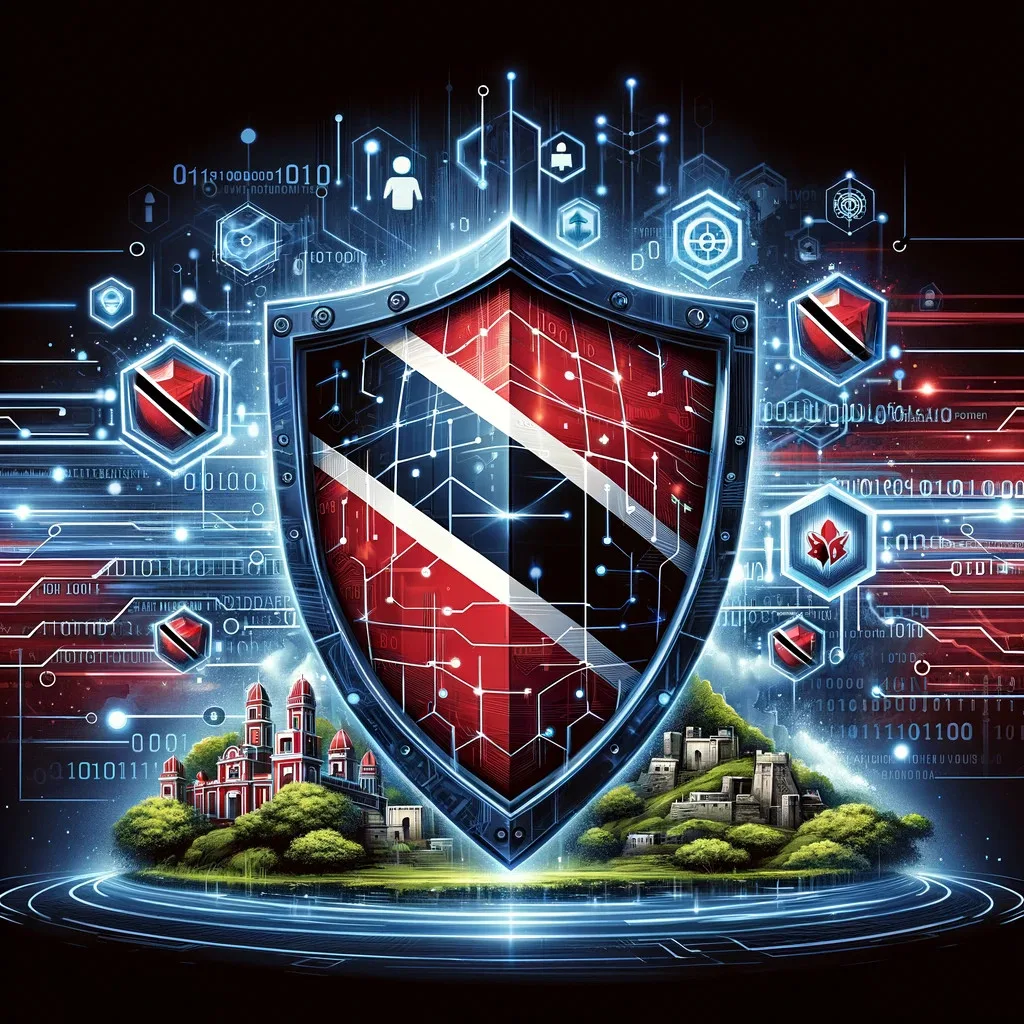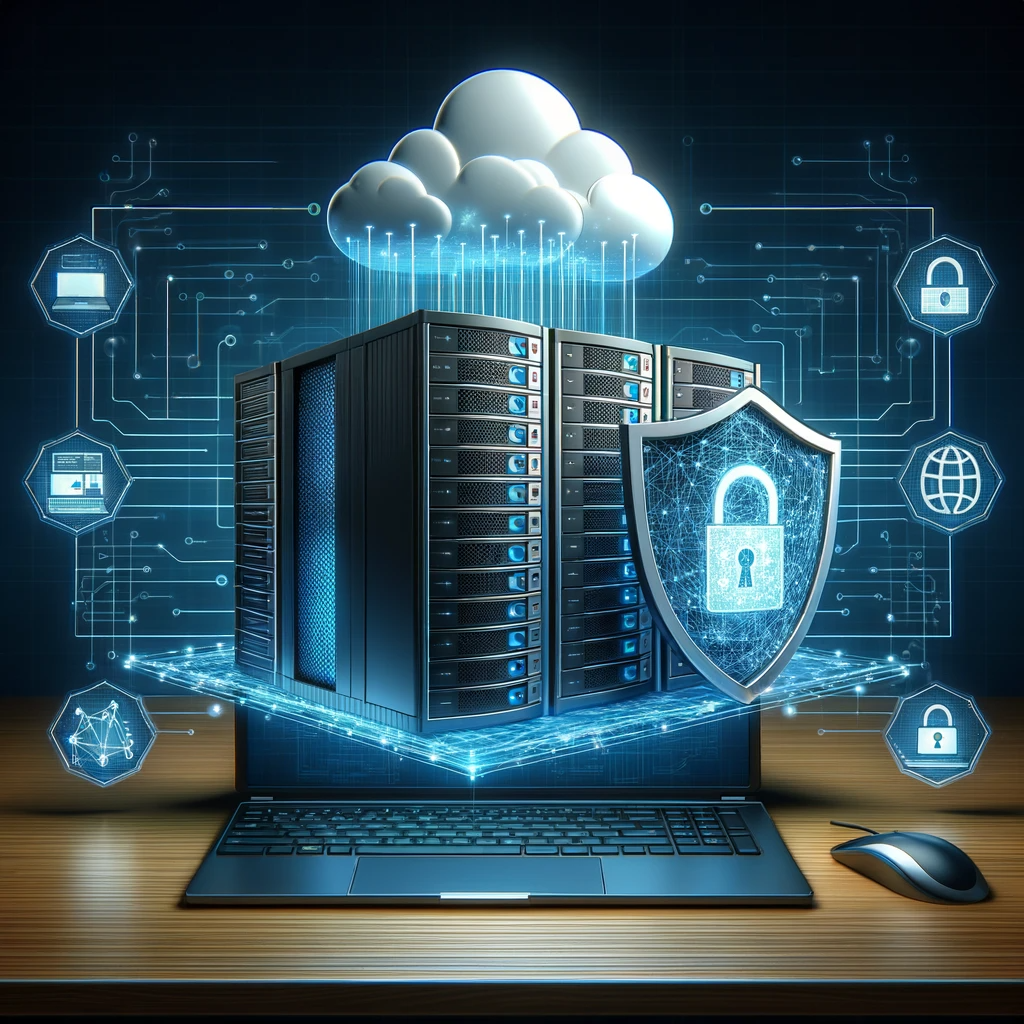
Blog Series Part 2: Building a Resilient Cybersecurity Framework Post-Breach for Businesses
Welcome back to our ongoing series on cybersecurity in the wake of the major breaches that have impacted TSTT, Courts, TTPOST, and PriceSmart. In Part 1, we embarked on a journey to understand the immediate aftermath of these incidents and began the first crucial steps to secure our digital lives in Trinidad and Tobago. We explored how to protect our personal information in this new, more vulnerable digital landscape and began navigating the complexities of cybersecurity in our businesses.
Now, in Part 2, we shift our focus to the business community in Trinidad and Tobago and globally. The data breaches have shed light on the urgent need for a more robust and resilient cybersecurity framework for businesses. Today, we will explore advanced strategies that not only bolster network security but also cultivate a culture of cyber awareness among employees.
Cybersecurity for Businesses – Elevating Your Defence Strategy
Businesses in Trinidad and Tobago and as a matter of fact the interconnected global community must adopt robust cybersecurity measures to protect their data and reputation. We Continue to explore some advanced strategies that businesses can implement to enhance their cybersecurity posture.
Firewalls: The Crucial Guard for Your Small Business’s Network
Imagine your business’s network as the heart of your operation, pumping vital information through its veins. Just like our bodies need healthy arteries to function properly, your business requires a secure and resilient network for smooth operations. This is where firewalls step in, acting as the guardians of your digital heart. Without strong firewalls, it’s like leaving the door open for anyone to walk in, putting your business at risk of cyber attacks that could compromise sensitive data and disrupt your daily operations.

Today’s network security is much more advanced than it used to be, thanks to the evolution of next-generation firewalls. These are not your typical barriers; think of them as smart guards that keep a watchful eye on who comes in and out of your business’s digital space. Firewalls like Fortinet FortiGate, Palo Alto Networks, Check Point, Cisco ASA with FirePOWER, and Sophos XG Firewall are at the forefront of this technology. They do more than just block unwanted traffic; they’re equipped to prevent, detect, and fight off sophisticated cyber threats. This is a critical first line of defence for your business, and should not be ignored.
Beyond Firewalls: Deep Instinct’s Pioneering Approach to Endpoint Security
As seen with the major breaches over the past two weeks, it is evident that even companies equipped with firewalls and dedicated cybersecurity teams are not immune to cyber threats. This underlines a crucial aspect of cybersecurity: the need for robust endpoint protection. Endpoint protection serves as a vital complement to traditional firewalls and cybersecurity measures, addressing vulnerabilities at the very entry points – the endpoints – where users interact with the network through devices like servers, desktops, laptops, and mobile devices.
The importance of endpoint protection is highlighted when considering how breaches can occur despite having strong perimeter defences. Malicious actors can still penetrate networks, often exploiting endpoints as their entry points. This risk is heightened when threats bypass firewalls or when they are introduced into the network internally, perhaps unintentionally, by an employee using an infected flash drive. In such scenarios, endpoint protection becomes the last line of defence, safeguarding critical data and systems where traditional security measures might fall short.
click here for more info on our deep instinct endpoint solution
Deep Instinct’s role in fortifying endpoint security cannot be overstated. By employing advanced deep learning technology, Deep Instinct doesn’t just react to threats; it proactively prevents them. This AI-driven approach is crucial for predicting and thwarting cyber threats, including the elusive zero-day attacks and Advanced Persistent Threats (APTs), providing an essential proactive defence layer. In today’s increasingly sophisticated threat landscape, this pre-emptive approach ensures that threats are neutralized before they can wreak havoc.
mplementing Deep Instinct as part of your cybersecurity strategy significantly enhances your organization’s defense capabilities. Unlike conventional solutions that kick into action post-incident, Deep Instinct’s proactive stance works continuously, effectively stopping threats before they can inflict damage. In an era where cyberattacks are becoming more frequent and complex, integrating Deep Instinct’s endpoint protection solutions can be the difference between a secure network and a costly breach. For more information on how Deep Instinct can strengthen your endpoint security,

Virtual Private Networks (VPNs) for Remote Employees… Not Anydesk or TeamViewer!
Amidst the rise of remote work, VPNs have become essential. They create secure, encrypted tunnels for internet traffic, ensuring data confidentiality. Unlike remote desktop applications like AnyDesk or TeamViewer, which offer control over devices, VPNs protect the data transmitted over public networks, making them a cornerstone of remote work security. As we increasingly have queries about the remote nature of these two programs, we have summarised the difference between these and VPNs.
AnyDesk and TeamViewer:
Purpose: Both AnyDesk and TeamViewer are designed for remote desktop access and control. They allow users to remotely access and manage computers or devices from another location over the internet.
Use Cases: These applications are commonly used for IT support, remote work, accessing files on a home or office computer from a different location, or conducting remote presentations and trainings.
Functionality: They provide features like screen sharing, file transfer, remote printing, and sometimes voice or video communication.
VPNs:
Purpose: A VPN, on the other hand, is designed to create a secure and encrypted connection over the internet. It essentially forms a private network from a public internet connection, allowing you to connect to your office, with out the data being intercepted via the use of encrypted tunnels.
Security Focus: The primary purpose of a VPN is to enhance security and privacy, particularly when using public Wi-Fi networks. It encrypts data transmitted over the internet, protecting it from eavesdroppers.
Use Cases: VPNs are used for secure browsing, accessing region-restricted content, protecting data transmissions, and maintaining anonymity online.
If you would like to have a more in-depth understanding of VPN’s, click EMMY above, or the green icon to the left, and have a chat with our Ai Powered Virtual Technical Support Agent.
Secure Wi-Fi Practices
In today’s wireless world, implementing robust Wi-Fi encryption and network segmentation is not just a recommendation but a necessity. These practices safeguard your business from unauthorized network access and wireless eavesdropping, ensuring that your data stays within the confines of your secure network. Network Segmentation separates your Wi-Fi networks into segments – one for internal authorised business use and another for guests or employees personal devices. This limits access to sensitive company data, but more importantly mitigates the risk of an infected or contaminated device being introduced to the network. Wi-Fi Encryption and Authentication: Use strong encryption (like WPA3) for your Wi-Fi networks and ensure robust authentication methods are in place.
Employee Training and Cybersecurity Policies
Regular Employee Training
Creating a culture of cybersecurity awareness starts with regular training and clear policies. Educating employees on best practices, phishing prevention, and safe internet use is as crucial as implementing these policies. Regular simulations of cyberattacks can significantly enhance the preparedness and awareness of your team.
Establishing Clear Cybersecurity Policies
Develop clear, comprehensive cybersecurity policies covering aspects like password management, device usage, data handling, and response protocols in case of a security breach. Implement policy enforcement and ensure that these policies are strictly enforced and regularly updated to adapt to new cyber threats.
Incident Response: Preparation is Key
An effective incident response plan is a business’s playbook in the event of a cyber crisis. Having a well-trained response team and conducting regular drills ensures swift and efficient management of cyber incidents, thereby minimizing their impact.
The Importance of Regular Security Audits
Conducting regular security audits and engaging external cybersecurity experts for vulnerability assessments are vital steps in maintaining a robust cybersecurity posture. These practices help identify potential weak spots, ensuring your cyber defences remain impenetrable.
Conclusion: A Continuous Cybersecurity Journey
The journey of cybersecurity is ongoing – a process of vigilance, adaptation, and proactive measures. Stay tuned for Part 3 of our series, where we will delve into long-term cybersecurity strategies and future outlooks for businesses.
At PC Expertz Limited, we are committed to guiding you through the complexities of cybersecurity, helping you build a secure digital future for your business. For a more in-depth understanding of VPNs and tailored cybersecurity advice, engage with EMMY, our AI-powered Virtual Technical Support Agent. Together, let’s fortify our defences and navigate the digital world with confidence and security.









